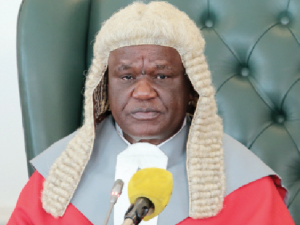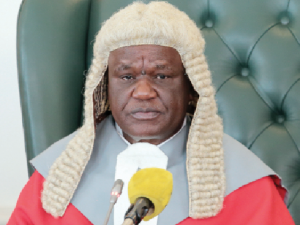President, Strategic Solutions, Morae Legal
The legal services industry has significantly evolved over the past decade and, as we enter 2020, corporations are well-positioned to accelerate the transformation of law departments. We recently sat down with Joy Saphla, President and Co-Founder of Morae Global, a full-service, tech-enabled service provider that works with major corporations and law firms globally to transform how legal services are being delivered in a sustainable manner, including through a smaller financial footprint, more efficient service delivery, improved performance, and all without compromising risk management. Joy gave us her thoughts on what’s driving the transformation of law departments and the relevant trends we can expect to see this year.
Why are we seeing law department transformation heat up going into 2020?
Transformation is heating up, in part, organically as a function of the business climate we are in. Leaders in the legal industry are seeing unprecedented global uncertainty right now, stemming from an ever-changing regulatory landscape and the pace at which new regulations are coming online. There is equal concern around the economy, notably the anticipation of a possible recession, coupled with geopolitical volatility and an ever-present risk of cybersecurity breaches.
Law departments are having to balance a need to make decisions on investments in technology against a dizzying array of global regulations being developed and passed. This requires spending budget on the right solutions while at the same time addressing increasing pressure to reduce or retain their spend levels. The apparent conflict creates an internal motivation to look at operations and think about what types of transformations are needed most. The objective is for businesses to continue to be able operate in risk-prone areas of the world and simultaneously better manage law department spend, track metrics on how effectively and efficiently legal work is being done, and establish greater predictability into where departments will need to invest to stay ahead of the curve on risk and cost management.
How will we see spend management change in the coming year?
Corporations are asking for more proactive spend management and reporting. The priority on metrics reporting and tools like dashboards will be higher than it’s ever been. There’s a growing need to know where you’re heading in order to avoid budget surprises and yet drive the best transformation possible for how legal work is being done. Many companies are anticipating a possible economic recession, so spend management is naturally a focus. At the same time, general counsel and COOs are actively looking for the funds to support technology enhancements that are most crucial for addressing requirements for regulatory compliance.
In addition, companies will be thinking about outside counsel management somewhat differently than they have in the past. Alternative legal service providers (ALSPs) are taking on a growing role in the legal services supply chain and therefore a larger portion of law department legal spend. The ongoing shift to ALSPs saw a rise in 2019 and I believe this will continue in 2020, so much so that we should drop the A and simply call them LSPs. Legal services have become a three-way ecosystem of legal departments, law firms, and LSPs. Companies ought to think about how their infrastructure is set up in order to accommodate all three participants in the overall value chain.
You mentioned the changing regulatory landscape. What major regulatory changes are driving transformation in 2020?
A good example of this is LIBOR, a benchmark interest rate used by many global banks which is retiring at the end of 2021. We’re at a point now in 2020 when the evaluation of how to address LIBOR should have already been done so that companies can now gear up for change implementation. Of course, such is not always quite the case. Morae Global has been working with a number of our clients on putting fast-tracked solutions into place. We have both the legal pedigree and technological capabilities that many corporations are beginning to discover that they need in order to get over the LIBOR hurdle.
Another key regulatory challenge is the California Consumer Privacy Act (CCPA), which went into effect January 1, 2020. It is essentially a U.S. equivalent to the GDPR. Companies need to be sure their data collection, retention, and security practices are in compliance. Both LIBOR and CCPA are taking higher priorities for many organizations because, despite knowing that these changes were coming, they may not be as far along with preparations as they would like to be. The issues are complex to solve.
For example, law departments are finding they must conduct data security audits of their law firms. Under the specter of news headlines about data breaches, companies are rightfully concerned about ensuring their firms have the proper security and infrastructure in place to manage corporate data on their behalf. Morae does help our clients with these kinds of audits. I believe the legal market will see an increase in this type of cybersecurity activity in 2020.
The impact of Brexit is another important consideration. With the UK withdrawing as a member of the European Union on January 31, 2020, businesses with UK operations should have updated data policies and procedures ready to go with regard to GDPR requirements. Ideally they do not want to suddenly find themselves effectively exporting data outside of the EU without the appropriate measures being in place. The GDPR doesn’t prevent the export of the data, but there are conditions for how data should be treated in these circumstances. In the US, we have the Safe Harbor program to help guide these efforts. Organizations will want to ensure they utilize the appropriate data handling mechanisms in the UK too.
What role will technology play in transformation?
Technology, and more importantly how it’s used, represents a major underpinning of the transformations we’ll see. Cloud-enabled technology will play a significant role as the economy continues to globalize and move toward ever more collaborative teams. Morae Global embraces this trend and we’ve successfully helped our clients around the world with the transition of over a billion documents to the cloud. We’re not simply a tech company that sells software, but rather almost every solution we deliver has technology woven in.
Cloud is not simply an endgame either. It can enable more effective use of technology across dispersed teams. So it is a crucial part of achieving meaningful transformation, especially in the areas of self-service and cost containment. AI in particular is seeing a steady rise in adoption, with one example being the growing popularity of law department dashboards and metrics reporting. These capabilities facilitate more informed decision-making. Moreover, by using technology to perform tasks that humans were previously doing manually, legal teams can shift their focus to higher value tasks, work more efficiently, and free up more time to engage and partner with the rest of their business. The role of legal will move to emphasizing a combination of business and legal advice to help their organizations navigate risk, not just to avoid it, and ultimately help facilitate reaching difficult business goals.
Automation is another important technology trend, which is not just about improvements in cost savings and efficiency. It can enable self-service functions that will help companies to manage risk in highly specific ways. When you’re no longer solely relying on individuals to make the right judgement calls, you’re able to drive greater process consistency and you can gain enhanced peripheral vision of the issues with a wider array of metrics data at your fingertips. The trend for self-service is quite significant. Often these functions will have legal service requests feeding directly into workflow automation, which is a powerful enabler of efficiency. But I’d like to see more law firms proactively partnering with legal service providers to offer these capabilities to law departments. It goes right to the heart of improving the legal supply chain and helping to drive better performance management of all the constituent parts.
Are there any other transformation trends you expect to see in 2020?
We’ve now been through the era of internalizing resources. In 2020, the trends we’ll see are an increase in self-service and a shift of work into managed services. The type of work performed within law departments will evolve too, most notably including the reallocation of resources to perform higher-value, more meaningful legal work. I expect this will take the form of law departments increasingly partnering with providers and moving internal resources into proactive risk management and business growth roles.
It is clear law departments are under a lot of pressure, not unlike other business functions, and so they must demonstrate the value they bring to their organizations. While we no longer talk about them as cost centers, they don’t generate any revenue. So having the right information at their fingertips will be crucial to showing that they are using their resources wisely and generating measurable value to the business. This will help the department leadership to justify the need for further investments in technology and resources in order to deliver the best value possible while still managing risk within acceptable thresholds. AI, dashboards, automation, data insights, all of these capabilities will be instrumental to continued law department transformation in 2020.














 Jill Switzer has been an active member of the State Bar of California for over 40 years. She remembers practicing law in a kinder, gentler time. She’s had a diverse legal career, including stints as a deputy district attorney, a solo practice, and several senior in-house gigs. She now mediates full-time, which gives her the opportunity to see dinosaurs, millennials, and those in-between interact — it’s not always civil. You can reach her by email at
Jill Switzer has been an active member of the State Bar of California for over 40 years. She remembers practicing law in a kinder, gentler time. She’s had a diverse legal career, including stints as a deputy district attorney, a solo practice, and several senior in-house gigs. She now mediates full-time, which gives her the opportunity to see dinosaurs, millennials, and those in-between interact — it’s not always civil. You can reach her by email at 
 Jordan Rothman is a partner of
Jordan Rothman is a partner of 